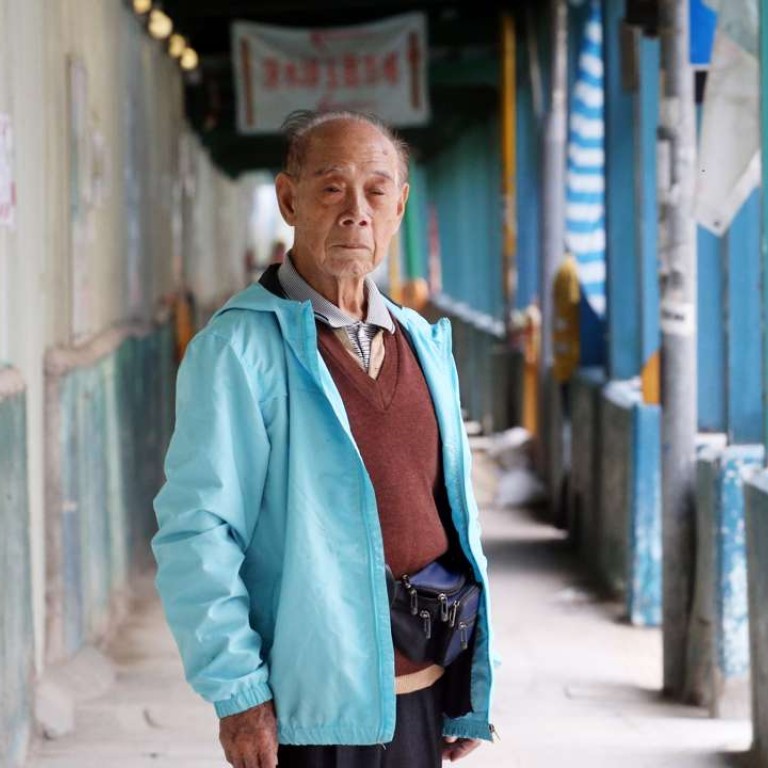
Retirement offset mechanism to be abolished, Hong Kong leader reveals in policy address
But the chief executive does not indicate when exactly the controversial practice favoured by the business sector would end
Hong Kong’s top official has proposed “progressively” abolishing the controversial practice of allowing employers to use the money they put into workers’ retirement funds to offset severance or long-service payments.
Taxpayers are to foot a bill of HK$6 billion over the next 10 years to fund employers as a trade-off.
Watch: CY Leung’s final policy address
The plan forms part of his pledge to “reinforce” the retirement protection system, which includes strengthening social security, expanding a medical subsidy for elderly persons, and encouraging development of financial products for elderly persons
By law, a company that fires a worker who has more than five years of service must pay a long-service fee equal to the number of years of service multiplied by two-thirds of the employee’s monthly income up to HK$15,000 for each year, or a maximum of HK$390,000.
Employers’ MPF contributions before the implementation date of the proposal will be grandfathered
Leung on Wednesday said the government proposed to “progressively abolish the offsetting of severance payments or long service payments with MPF contributions”. He said the abolition would have “no retrospective effect”.
“In other words, employers’ MPF contributions before the implementation date of the proposal will be grandfathered,” he explained.
To reduce the financial burden on employers after the mechanism is abolished, the government is considering lowering the amount employers are required to pay – from two-thirds of the worker’s monthly pay to half of that.
The government would also bear part of the cost in the 10 years after the abolition is implemented. It could total HK$6 billion and the government is not expected to fund the employers after 10 years.
Leung said the government would discuss the move with the business and labour sectors in the coming three months. He hoped the government could finalise the proposal by the end of June.
But he did not say when the offsetting would be scrapped.
Former pro-establishment lawmaker Chan Yuen-han of the Federation of Trade Unions said the plan came too late. Lawmaker Felix Chung Kwok-pan of the pro-business Liberal Party Felix Chung opposed the idea, saying it would increase business costs.
Despite his pledge to strengthen retirement protection, Leung held firm on not providing a universal retirement protection scheme that would give a flat-rate payment without any means test for elderly, despite calls to do just that.
He said such a scheme would “dilute the support available to those in need”.
Instead, elderly persons with greater financial needs would be eligible for a higher allowance. Elderly single individuals aged 65 or above with assets not exceeding HK$144,000, or elderly couples with assets not exceeding HK$218,000, would receive HK$3,435 a month as part of the Old Age Living Allowance. That would be one third higher than the existing rate.
We’ve worked so hard over the years. It’s about time the government repays us
Kwok Chi-yin, 85, a current recipient of the allowance, welcomed the extra HK$1,000 a month.
“I used to wait until the end of the day to buy the leftover fruits and vegetables at the market, but now with some more money in my pocket I can eat better and afford more meat in a meal,” Kwok said after watching the chief executive’s address.
However, he was still disappointed by the lack of a universal retirement protection scheme.
“The government keeps saying it won’t have enough money [for the scheme], but they do. We’ve worked so hard over the years. It’s about time the government repays us,” Kwok said.
From February 1, the government will relax the asset limits from HK$225,000 to HK$329,000 for elderly single persons and up to HK$499,000 for elderly couples. The plan is to allow more people to receive the allowance. Some 500,000 senior citizens are expected to benefit from these two measures.


